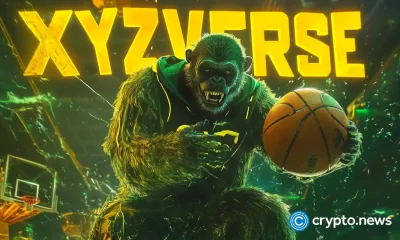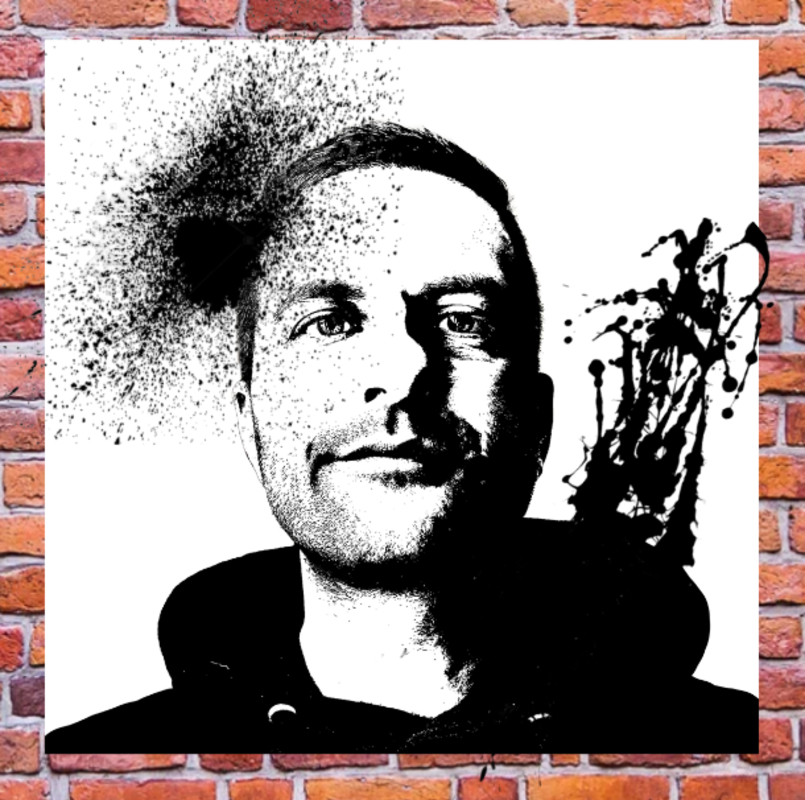Opinion
A Zero-Knowledge Proof Is Verified on Bitcoin For The First Time in History
Published
5 months agoon
By
admin

Earlier this year, Weikeng Chen and his partners at venture firm L2 Iterative decided to shift their attention to the bubbling Bitcoin ecosystem. Chen, a Chinese native, had taken notice of the growing interest in Bitcoin development from several large actors in the mining space who started backing different projects in the Ordinals and layer 2 space.
“I never really realized Bitcoin had a development community,” he says, half-joking.
Fast forward to last week, an open-source initiative led by himself, with sponsorship from infrastructure company Starkware, has achieved the first implementation of a zero-knowledge verifier using Bitcoin script.
In an industry where significant breakthroughs are few and far between, those involved in the effort are gushing about the significance of this milestone. Zero-knowledge proofs, they argue, are the key to unlocking Bitcoin’s programmability and scaling its use globally.
Behind this achievement is the remarkable journey of an outsider who picked up Bitcoin development just six months ago and has now coded arguably its most advanced piece of software. I interviewed Weikeng Chen to delve into his motivations, his collaboration with Starkware around OP_CAT and STARKs, and his perspectives on this new era of Bitcoin development.
Starting from scratch
A PHD graduate from UC Berkeley with a specialization in cryptography, Chen explained he began seeking an opportunity to contribute his technical skills to the industry to better position his firm with potential investors and companies. Despite his extensive engineering experience, he quickly realized that resources were scarce and the learning curve was steep. “A lot of the material out there is outdated and does not reflect the current state of development.” His affinity for zero-knowledge technology eventually led his research to focus on Bitcoin’s ability to perform the computations required for verifying zero-knowledge proofs.
As one rabbit hole led to another, Robin Linus’ work on the novel computing paradigm of BitVM came onto his radar. Interested in the potential of using fraud proofs to implement zero-knowledge systems compatible with Bitcoin, he started poking around the white paper and noticed some issues with some of the concepts involved in the system. “I sent a message to Robin asking a few questions about BitVM. My understanding of BitVM from that whitepaper was indeed dead wrong. I remember Robin’s first reaction was to ask me who had told me this,” he recalls laughing. This interaction sparked a brief but productive collaboration between Chen, Linus, and other researchers as they iterated on the original idea and looked for ways to optimize it.
“It was obvious to me that this method could be used to verify zero-knowledge proof so my work quickly went in the direction of implementing a SNARK verifier.”
A verifier is a cryptographic tool that enables the verification of zero-knowledge proofs on the Bitcoin network.
The OP_CAT opportunity
Around the same time, a team at zero-knowledge industry giant Starkware was paying close attention to the emerging activity coming out of the Bitcoin community. For some, it was a long time coming. Starkware founder Eli Ben-Sasson was arguably the first person to discuss zero-knowledge technology in the context of cryptocurrencies at an early Bitcoin conference. Almost a decade later, Starkware’s research and ZK-STARK technology serve as the foundation of a growing number of applications in the space.
“Back in 2013, when I suggested using validity proofs to scale Bitcoin, I was hoping Satoshi might still be around and would make it happen faster. Thanks to cryptography visionaries like Weikeng Chen and Bitcoin OP_CAT researchers like Andrew Poelstra and Ethan Heilman, my 11-year old dream feels now within reach,” Ben-Sasson commented.
Last month, the company announced they were beginning the deployment of numerous initiatives focused on closing the technology gap between Bitcoin and zero-knowledge proofs. A $1,000,000 application grant was offered towards research and exploration into the potential of the OP_CAT soft fork proposal.
The announcement was marked by notable enthusiasm, leaving some to wonder what was driving this optimism. Until recently, the prospects of zero-knowledge technology on Bitcoin had been mostly an afterthought — another OP code that might never see the light of day. Indeed, the difficulty of getting consensus over smaller changes to the Bitcoin codebase made it seem unlikely something more complex would ever come to pass.
Based on conversations with Starkware contributors, it was around May when they caught wind of Weikeng’s progress on BitVM and the mood shifted dramatically. As it would turn out, the developer had already set his sights on the company’s Circle STARKs technology. In a paper released a couple of months ago, Chen had already identified the latter as a “Bitcoin-friendly proof system.”
After some back and forth, both parties agreed to come together and stand up a joint effort dedicated to an open-source implementation of a STARK verifier using the OP_CAT primitive. “I knew it could be done. We just needed to put all the pieces together,” suggests Chen. The “Bitcoin Wildlife Sanctuary” was born.
Two months later, the project appears to have reached its goal thanks to the collaboration of other developers like Pingzhou Yuan, another early BitVM contributor. Late morning last Friday, Chen jumped into the project’s Telegram group to break the news to other participants: “I think I finished the job!”
Following successful local tests, the developer broadcasted a series of transactions to Bitcoin’s Signet testnet network that would execute the entire script. To optimize on-chain usage, the STARK proof, based on Starkware’s open-source Stwo implementation, is split into concurrent transactions chained together using an OP_CAT based covenant.
At 6:29AM on July 12, 2024, the final transaction was confirmed on the Signet network, signaling what proponents believe could be the beginning of a new era of development on Bitcoin.
“This was a tremendous effort and took a significant amount of time,” said Chen. “We started with nothing. There’s no information about ZK proofs on Bitcoin. There’s no information regarding the mathematical operations to follow. We had to build the full stack, which eventually led to the implementation of the STARK verifier.”
Inspiring a new development path
While the results deserve to be celebrated, Chen is insistent the job is not done. Asked if he was optimistic about his work creating the foundation for new scaling protocols like rollups on Bitcoin, the developer was quick to tamper expectations.
“The idea roughly works but the proof-of-concept is not production-ready. Validity proofs also take a lot of block space which might turn out to be expensive in the future.”
Contributors at Starkware acknowledge the challenges ahead but are confident the success of the project represents “a monumental leap forward” towards Bitcoin scaling solutions that can leverage their ZK rollup technology.
One thing is for sure, the collaboration is likely to further strengthen arguments in favor of a potential OP_CAT soft fork. In order to put together the verifier implementation, Chen says he had to develop a reliable framework for covenants using CAT which can serve to highlight the versatility of the script improvement proposal. He believes other developers in the ecosystem can play with his code and come to the same conclusion he did regarding its benefits.
“I don’t think there is a lot of risk once we have developed best practices. There are not that many places where this is going to go wrong. We now have a clear demonstration that OP_CAT can be adapted to various covenant projects in a safe way.”
When questioned about his intention to contribute to a future activation process, the developer readily admits he is not familiar enough yet with all of the dynamics around Bitcoin open-source development. Next, he intends to share his progress with members of the development mailing list and hopes others will be able to contribute review, and provide feedback on his work.
Reflecting on his experience so far, Chen immediately points out the importance of creating a fertile environment for new developers entering the ecosystem. He believes many talented developers are passing on the opportunity to build on Bitcoin because of the lack of a cohesive vision.
“There is not a clear sense of direction right now which leaves contributors perplexed about their ability to impact the future. Hopefully, the emergence of new tools and primitives can improve this situation so Bitcoiners are allowed to dream again.”
Source link
You may like


XRP’s $5, $10 goals are trending, but this altcoin with 7,400% potential takes the spotlight


CryptoQuant Hails Binance Reserve Amid High Leverage Trading


Trump Picks Bo Hines to Lead Presidential Crypto Council


The introduction of Hydra could see Cardano surpass Ethereum with 100,000 TPS


Top 4 Altcoins to Hold Before 2025 Alt Season


DeFi Protocol Usual’s Surge Catapults Hashnote’s Tokenized Treasury Over BlackRock’s BUIDL



Recently, BlackRock released an educational video explaining Bitcoin, which I thought was great—it’s amazing to see Bitcoin being discussed on such a massive platform. But, of course, Bitcoin X (Twitter) had a meltdown over one specific line in the video: “There is no guarantee that Bitcoin’s 21 million supply cap will not be changed.”
HealthRnager from Natural News claimed, “Bitcoin has become far too centralized, and now the wrong people largely control its algorithms. They are TELLING you in advance what they plan to do.”
Now, let me be clear: this is total nonsense. The controversy is overhyped, and the idea that BlackRock would—or even could—change bitcoin’s supply is laughable. The statement in their video is technically true, but it’s just a legal disclaimer. It doesn’t mean BlackRock is plotting to inflate bitcoin’s supply. And even if they were, they don’t have the power to pull it off.
Bitcoin’s 21 million cap is fundamental—it’s not up for debate. The entire Bitcoin ecosystem—miners, developers, and nodes—operates on this core principle. Without it, Bitcoin wouldn’t be Bitcoin. And while BlackRock is a financial giant and holds over 500,000 Bitcoin for its ETF, its influence over Bitcoin is practically nonexistent.
Bitcoin is a proof-of-work (PoW) system, not a proof-of-stake (PoS) system. It doesn’t matter how much bitcoin BlackRock owns; economic nodes hold the real power.
Let’s play devil’s advocate for a second. Say BlackRock tries to propose a protocol change to increase bitcoin’s supply. What happens? The vast network of nodes would simply reject it. Bitcoin’s history proves this. Remember Roger Ver and the Bitcoin Cash fork? He had significant influence and holdings, yet his version of bitcoin became irrelevant because the majority of economic actors didn’t follow him.
If Bitcoin could be controlled by a single entity like BlackRock, it would’ve failed a long time ago. The U.S. government, with its endless money printer, could easily acquire 10% of the supply if that’s all it took to control Bitcoin. But that’s not how Bitcoin works. Its decentralized nature ensures no single entity—no matter how powerful—can dictate its terms.
So, stop worrying about BlackRock “changing” Bitcoin. Their influence has hard limits. Even if they tried to push developers to change the protocol, nodes would reject it. Bitcoin’s decentralization is its greatest strength, and no one—not BlackRock, not Michael Saylor—can change that.
This article is a Take. Opinions expressed are entirely the author’s and do not necessarily reflect those of BTC Inc or Bitcoin Magazine.
Source link
Opinion
It’s Time to Admit It – There Are Only 2.1 Quadrillion Bitcoins
Published
2 days agoon
December 21, 2024By
admin
If the above statement offends you, you might not have read the Bitcoin source code.

https://x.com/pete_rizzo_/
Of course, I’m sure you’ve heard that there are 21 million bitcoin – and this is true, the Bitcoin protocol allows for only “21 million bitcoin” to be created, yet these larger denominations can be subdivided into 100 million sub-units each.
Call them whatever you want, there are only 2.1 quadrillion monetary units in the protocol.
This dollars and cents differential has long been the subject of debate – in the time of Satoshi, Bitcoin’s creator, the dual conventions, Bitcoin having both a bulk denomination, and a smaller unit, was not much of a concern. There were questions about whether the software would work at all, and bitcoin were so worthless, selling them in bulk was the only rational option.
Rehashing this debate is BIP 21Q, a proposal to the Bitcoin users authored by John Carvalho, founder of Synonym, creator of the Pubky social media platform, and a tenured contributor whose work dates back to the days of the influential Bitcoin-assets collective.
In short, the BIP proposes that network actors – the various wallets and exchanges – change how Bitcoin denominations are displayed, with the smallest unit of the protocol renamed “bitcoins,” as opposed to “satoshis,” as they have been commonly called.
Here are the specifics of the BIP:
Redefinition of the Unit:
- Internally, the smallest indivisible unit remains unchanged.
- Historically, 1 BTC = 100,000,000 base units. Under this proposal, “1 bitcoin” equals that smallest unit.
- What was previously referred to as “1 BTC” now corresponds to 100 million bitcoins under the new definition.
Terminology:
- The informal terms “satoshi” or “sat” are deprecated.
- All references, interfaces, and documentation SHOULD refer to the base integer unit simply as “bitcoin.”
Display and Formatting:
- Applications SHOULD present values as whole integers without decimals.
- Example:
- Old display: 0.00010000 BTC
- New display: 10000 BTC (or ₿10000)
Unsurprisingly, the debate around the BIP has been hostile. For one, it’s not a technical BIP, though this is not a requirement of the BIP process. Suffice to say, it’s perhaps the most general BIP that has been proposed under the BIP process to date, as it mainly deals with market conventions and user onboarding logic, not any changes to the software rules.
However, I have to say, I find the proposal compelling. Nik Hoffman, our News Editor, does not, preferring to stick to the market affirmative.
Yet, I think the proposal raises relevant questions: why should new users be forced to compute their Bitcoin balances using only decimals? Surely this has the adverse side effect of making commerce difficult – it’s simply antithetical to how people think and act today.
Also, in terms of savings, at an $100,000 BTC price, it isn’t exactly compelling to think you could be spending a whole year earning 1 BTC, though that may be.
Indeed, there have been various debates for all kinds of units – mBTC, uBTC – that play around with the dollars and cents convention, but Carvalho here is wisely skipping to the end, preferring just to rip the band-aid off. $1 would buy 1,000 bitcoins under his proposal.
What’s to like here, and I argued this during a Lugano debate on the topic in 2023, is that it keeps both the larger BTC denomination and the smaller unit, now bitcoins. They are both important, and serve different functions.
My argument then was that having a larger denomination like BTC (100 million bitcoins) is important. If there was no “BTC unit,” the press and financial media would be faced to reckon that “1 bitcoin” is still worth less than 1 cent.
How much mainstream coverage and interest do we think there would be? I’d bet not very much.
In this way, BIP 21Q is a best-of-both-worlds approach.
The financial world, press, and media can continue championing the meteoric rise in value of “BTC,” while everyday users can get rid of decimals and complex calculations, trading the only real Bitcoin unit guaranteed to exist in perpetuity.
This article is a Take. Opinions expressed are entirely the author’s and do not necessarily reflect those of BTC Inc or Bitcoin Magazine.
Source link
Bitcoin spot ETF
We Need In-Kind Redemptions For The Spot Bitcoin ETFs
Published
2 days agoon
December 21, 2024By
admin


On a recent episode of the Coinage podcast, guest SEC Commissioner Hester Peirce said that she is open to reconsidering in-kind redemptions for spot bitcoin ETFs.
(For those who aren’t familiar with the term “in-kind redemption,” it refers to the ability to withdraw the bitcoin you’ve purchased via an ETF into your own custody. In essence, it turns a bitcoin IOU into the real thing.)
BREAKING: SEC Commissioner Hester Peirce previews new pro-crypto changes coming to the SEC
ETF in-kind redemptions and ability for ETF issuers to begin staking likely done "early on"
Both ETFs now have more than $100B in AUM pic.twitter.com/g3jtbuBeWU
— Coinage (@coinage_media) December 20, 2024
This makes my heart happy, as bitcoin wasn’t designed to exist trapped within the wrappers of the old system. It was built to set us free from that system.
If Peirce can work with the incoming SEC Chair, Paul Atkins, to facilitate the approval of in-kind redemptions then the spot bitcoin ETFs can serve as some of the biggest on-ramps to Bitcoin, as Bitwise co-founder Hong Kim put it, as opposed to simply existing as speculation vehicles.
Bitcoin was born to exist in the wild. It wasn’t born to exist in a Wall Street zoo.
In-kind redemptions would allow the bitcoin currently trapped within the zoo the ability to return to its natural habitat.
This article is a Take. Opinions expressed are entirely the author’s and do not necessarily reflect those of BTC Inc or Bitcoin Magazine.
Source link

XRP’s $5, $10 goals are trending, but this altcoin with 7,400% potential takes the spotlight

CryptoQuant Hails Binance Reserve Amid High Leverage Trading

Trump Picks Bo Hines to Lead Presidential Crypto Council

The introduction of Hydra could see Cardano surpass Ethereum with 100,000 TPS

Top 4 Altcoins to Hold Before 2025 Alt Season

DeFi Protocol Usual’s Surge Catapults Hashnote’s Tokenized Treasury Over BlackRock’s BUIDL

DOGE & SHIB holders embrace Lightchain AI for its growth and unique sports-crypto vision

Will Shiba Inu Price Hold Critical Support Amid Market Volatility?

Chainlink price double bottoms as whales accumulate

Ethereum Accumulation Address Holdings Surge By 60% In Five Months – Details

Ripple Transfers 90M Coins, What’s Happening?

Filecoin, Monero, and Lunex dominate smart investor portfolios

Bitwise CIO Matt Hougan Predicts Institutional Interest in Altcoins, Says 2025 the Year of Crypto Diversification

How Low Will Ethereum Price Go By The End of December?

Analyst says buying this altcoin at $0.15 could be as profitable as buying ETH at $0.66
182267361726451435

Why Did Trump Change His Mind on Bitcoin?

Top Crypto News Headlines of The Week

New U.S. president must bring clarity to crypto regulation, analyst says

Will XRP Price Defend $0.5 Support If SEC Decides to Appeal?

Bitcoin Open-Source Development Takes The Stage In Nashville

Ethereum, Solana touch key levels as Bitcoin spikes

Bitcoin 20% Surge In 3 Weeks Teases Record-Breaking Potential

Ethereum Crash A Buying Opportunity? This Whale Thinks So

Shiba Inu Price Slips 4% as 3500% Burn Rate Surge Fails to Halt Correction

Washington financial watchdog warns of scam involving fake crypto ‘professors’

‘Hamster Kombat’ Airdrop Delayed as Pre-Market Trading for Telegram Game Expands

Citigroup Executive Steps Down To Explore Crypto
Mostbet Güvenilir Mi – Casino Bonus 2024

NoOnes Bitcoin Philosophy: Everyone Eats
Trending

 3 months ago
3 months ago182267361726451435

 Donald Trump5 months ago
Donald Trump5 months agoWhy Did Trump Change His Mind on Bitcoin?

 24/7 Cryptocurrency News4 months ago
24/7 Cryptocurrency News4 months agoTop Crypto News Headlines of The Week

 News4 months ago
News4 months agoNew U.S. president must bring clarity to crypto regulation, analyst says

 Price analysis4 months ago
Price analysis4 months agoWill XRP Price Defend $0.5 Support If SEC Decides to Appeal?

 Opinion5 months ago
Opinion5 months agoBitcoin Open-Source Development Takes The Stage In Nashville

 Bitcoin5 months ago
Bitcoin5 months agoEthereum, Solana touch key levels as Bitcoin spikes

 Bitcoin5 months ago
Bitcoin5 months agoBitcoin 20% Surge In 3 Weeks Teases Record-Breaking Potential


